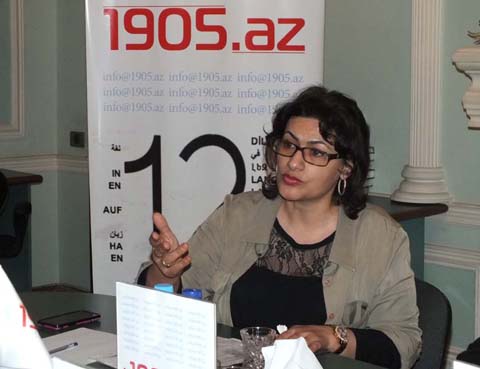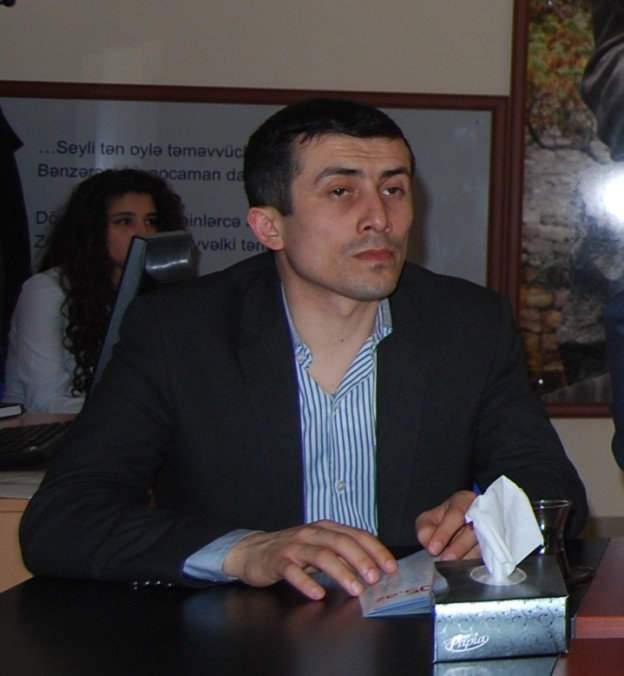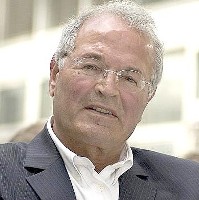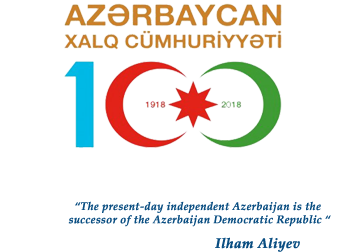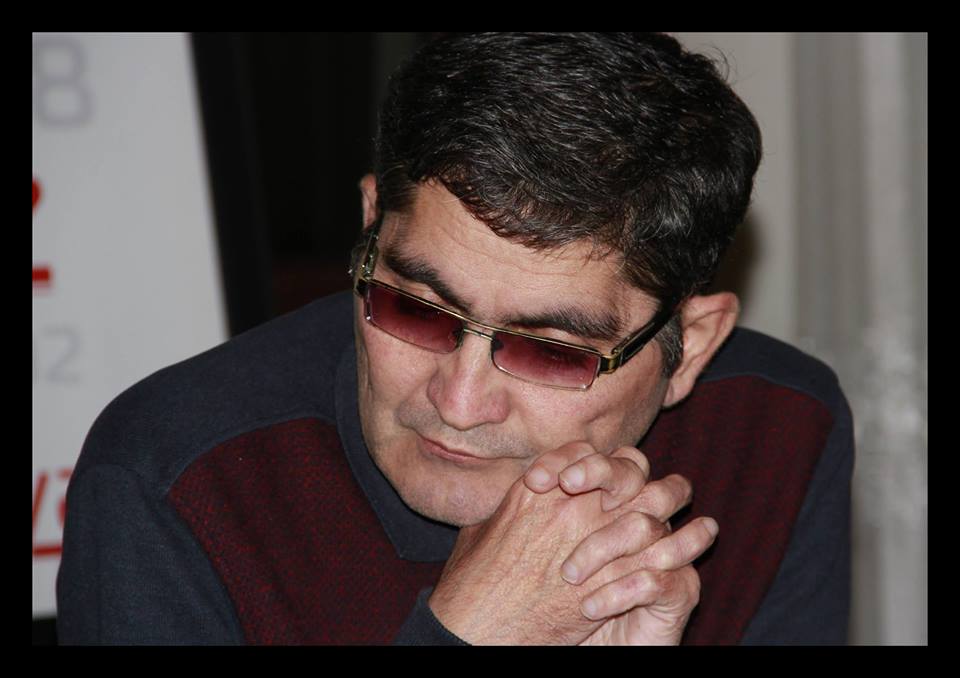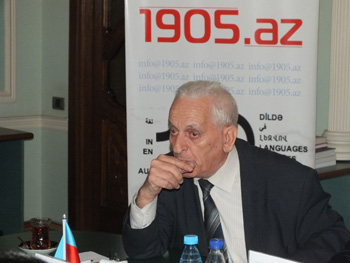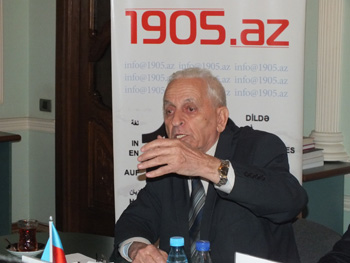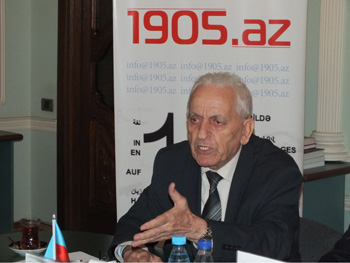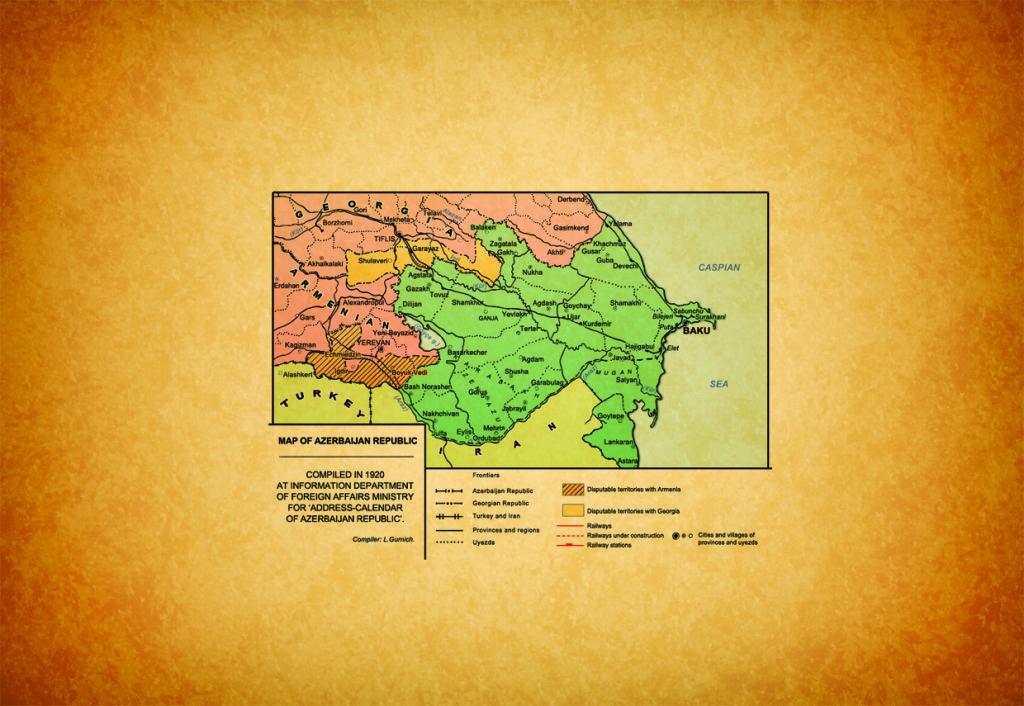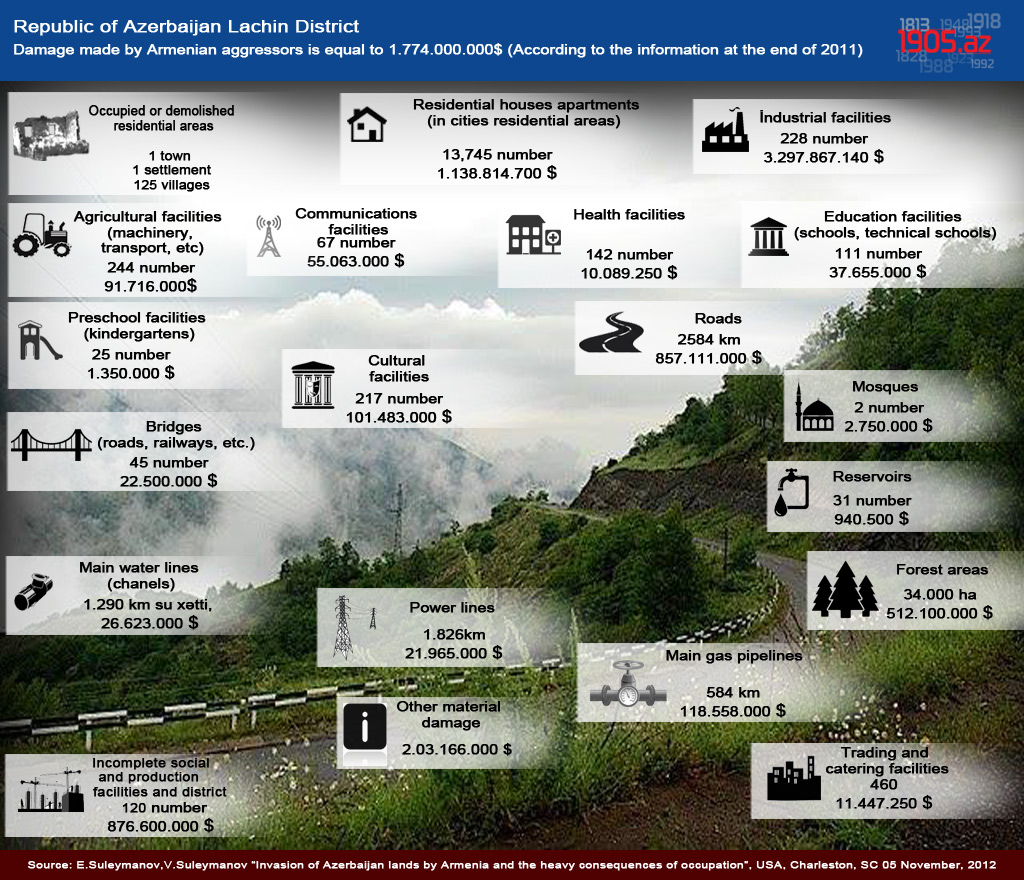The primary mission of the delegation of the Republic of Azerbaijan in the Parliamentary Assembly of the Council of Europe as a full member was determined to expose the occupation policy of Armenia, to convey the crimes of terror and massacre of Armenians against Azerbaijanis and the facts of occupation of 20 percent of the Azerbaijan territories by the Armenians, to achieve the recognition of Armenia as an aggressor by the European community and to impose international sanctions on Armenia as soon as possible.
Because of that reason the delegation of Azerbaijan in the Parliamentary Assembly of the Council of Europe prepared several documents on different aspects of the Armenian aggression against Azerbaijan and distributed them as official documents within the Council in a short time. Beyond this, some other documents, namely “About the massacre of Azerbaijanis conducted by Armenians”, “About the military captives and hostages taken in Armenia and Nagorno-Karabakh”, “About the education of refugees and displaced children”, “About the condition of displaced people in Azerbaijan” and others have been adopted by the Parliamentary Assembly of the Council of Europe. This process has been developed for further stages, and the delegation of Azerbaijan achieved to take the issue of the territorial integrity of the member states to the discussion in the Committee of Ministers of the Council of Europe. Although all member states signed the final documents that appeared as a result of the discussions, Armenia rejected to sign the documents, and in fact, unmasked itself before the international community.
The necessity of taking into consideration the territorial integrity of Azerbaijan in the settlement of the Nagorno-Karabakh problem has been emphasized in the Resolution of the Parliamentary Assembly of the Council of Europe adopted on May 24, 2001. Apart from that, the application of the Azerbaijan delegation addressed to the Committee of Ministers on “The recognition of the territorial integrity of Azerbaijan by Armenia” was taken to discussion by the representatives of 43 countries. In spite of impediments of some countries that supported Armenia, the 7 paragraphed decision adopted by the Committee of Ministers indicated that the Ministers confirm their support to the documents recognizing borders, sovereignty and territorial integrity of states in all Europe, as well as the respect to the principles of international law laid down in the Charter of the United Nations, Helsinki Final Act of CSCE and in other related documents. Mentioning the self determination of the people, it was emphasized that as a consequence of the issue this right should be realized through peaceful negotiations, and using force to capture any territory is unacceptable, and any consequence based on this cannot be recognized as legal. Moreover, some other documents were made up and disseminated in the Parliamentary Assembly of the Council of Europe. There were documents that were adopted with regard to the miserable life of Azerbaijani refugees and displaced people, the destruction of cultural monuments in occupied territories, the total annihilation of primary, secondary and higher schools, the deprivation of Azerbaijani children of their right of getting education.
The Azerbaijani delegation has constantly mentioned the Armenian state terrorist policy to the notice of the European MPs during the sessions of the Parliamentary Assembly of the Council of Europe. In addition, they emphasized that this policy does not only pose threat to Azerbaijan or to the entire region, but also to the global peace. During the discussions it was firmly noted that along with the occupation of Azerbaijani territories, Armenia carried out 32 terrorist acts against the Azerbaijani nation. As a repercussion of these terror acts more than two thousand people were killed. It was also added that the Armenian Republic closely cooperates with Armenian terrorist organizations, including “ASALA”. Moreover, it was also pointed out that the establishment of favorable conditions in the occupied territories of Azerbaijan by Armenia for setting up military camps for the training of terrorists, for cultivating and transporting drugs, including human trafficking, arms smuggling, and money laundering, are all proved facts.
As a result of continuous efforts the Parliamentary Assembly of the Council of Europe adopted the Resolution number 1416 on January 25, 2005 on the basis of the report of an MP from the United Kingdom, David Atkinson, on “the Conflict over Nagorno-Karabakh that the OSCE Minsk Conference is involved in”. Regretting the non-settlement of the Nagorno-Karabakh conflict the Resolution of the Parliamentary Assembly of the Council of Europe read that hundreds of thousands of people still remain as refugees and live in disastrous situations, and an important part of the Azerbaijan territory is still under occupation of Armenian forces, and separatists still control the Nagorno-Karabakh area. Along with expressing its concern the Parliamentary Assembly has confirmed that military operations and massive ethnic hostilities, which started before, and which were taken to the matter of broad expulsion and organizing mono-ethnic territories which remembers the notion of terrible ethnic cleansing, and moreover, separating regional territory from the other state and making it independent, should not be achieved through ethnic cleansing or a military conflict, in which consequence uniting the territory on de-facto base, but only through a legal and peaceful way and with the democratic support of the population. The Parliamentary Assembly has mentioned that the occupation of foreign territory by a member state is a serious violation of the obligations taken as a member state of the Council of Europe, and has confirmed that the displaced people from the occupied area have the right to return back to their homes safe and with honor. The Parliamentary Assembly has also mentioned the Resolutions of the Security Council of the UN 822 (1993), 853 (1993), 874 (1993), 884 (1993) and has made their enforcement through avoiding military operations of parties and withdrawing armed forces from the occupied territories. The Assembly has called the Bureau of the Parliamentary Assembly of the Council of Europe to organize a subcommittee, where the heads of national representatives of the countries of the OSCE Minsk Conference would also be involved in.
Generally, the Council of Europe has mentioned several times the fact of the occupation of the Azerbaijan territories by the Armenian military forces in its official documents. As the continuation of this process the Subcommittee of the Parliamentary Assembly of the Council of Europe on the Nagorno-Karabakh problem held a meeting in Strasbourg on January 9, 2006. The deceased Lord Russel Johnston’s report clearly indicated the occupation of Azerbaijan territories, the separatist nature of the Nagorno-Karabakh regime and the ultimate displacement of more than a million people. Thereby, the respected organization stated one more time that the positions of the Council of Europe and the official position of Baku coincide over the elimination of the Armenian aggression against-Azerbaijan.
However, the Subcommittee on the Nagorno-Karabakh , set up as a result of the resolution 1416 of the Parliamentary Assembly of the Council of Europe, in fact, ceased to function since the Armenian delegation took an unconstructive position. This lack of improvement in the peaceful resolution of the Armenian aggression against Azerbaijan, and it’s imposing threat not only to the region, but also to the global peace. This lack of efforts to the restoration of the subcommittee in order to remove massive violations of human rights in the area of the Council of Europe, is a regrettable sign of the existence of double standards and a deplorable indifference in the Council of Europe.
In addition, it should be noted that, just like other international organizations, the Council of Europe avoided imposing sanctions on the aggressor Armenia, but limited its mission with making different decisions and adopting resolutions over the Armenian aggression against Azerbaijan. This of course negatively affected the image of the Council of Europe and seriously decreased the credibility of the European organization in the Azerbaijani society.
The article has been prepared on the basis of the materials of the Book “ Azerbaijan 10 years member of the Council of Europe” by Elkhan Suleymanov (Baku, Khazar, 2011

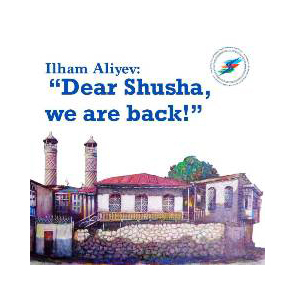
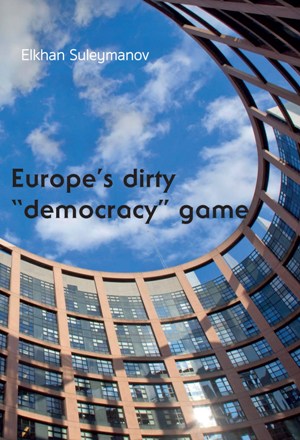
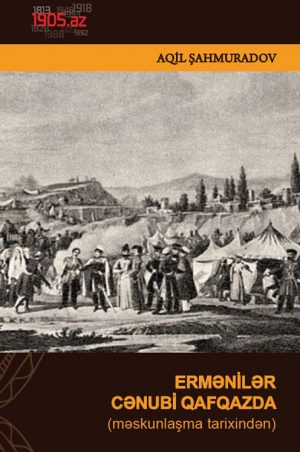





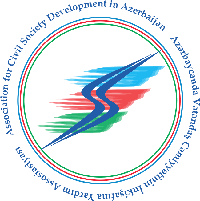
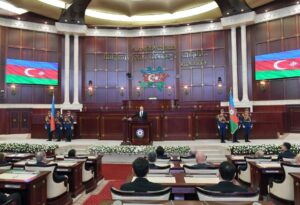 Inauguration ceremony of President of Azerbaijan Ilham Aliyev was held
Inauguration ceremony of President of Azerbaijan Ilham Aliyev was held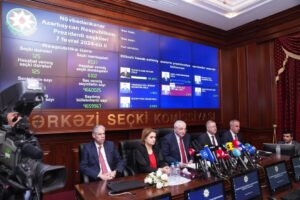 Ilham Aliyev wins presidential election with 92.05 percent of votes VIDEO
Ilham Aliyev wins presidential election with 92.05 percent of votes VIDEO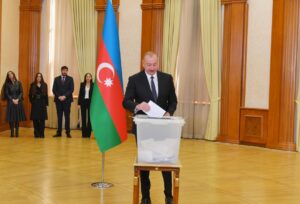 President Ilham Aliyev, First Lady Mehriban Aliyeva and family members voted in Khankendi VIDEO
President Ilham Aliyev, First Lady Mehriban Aliyeva and family members voted in Khankendi VIDEO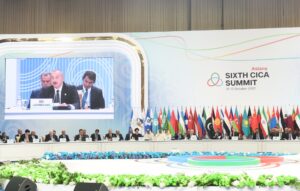 Plenary session of 6th Summit of Conference on Interaction and Confidence Building Measures in Asia gets underway in Astana. President Ilham Aliyev attends the plenary session VIDEO
Plenary session of 6th Summit of Conference on Interaction and Confidence Building Measures in Asia gets underway in Astana. President Ilham Aliyev attends the plenary session VIDEO President Ilham Aliyev was interviewed by Azerbaijani TV channels in Prague VIDEO
President Ilham Aliyev was interviewed by Azerbaijani TV channels in Prague VIDEO



